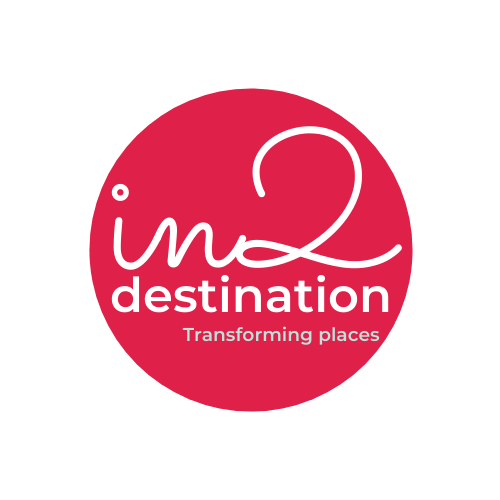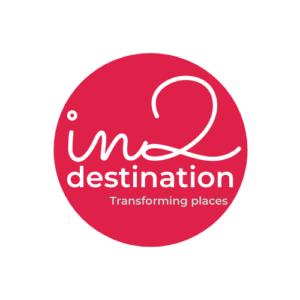Recently, a business trip has offered me the chance to experience a bit of the wonders Kazakhstan has to offer and one of them is clearly Almaty city and region. Thanks to that, I had the opportunity of interviewing Assel Nurkebayeva, CEO of Visit Almaty an organization that has been recently created to promote tourism in this region. Before starting the interview let me share with you the amazing video that Ms. Nurkebayeva kindly sent us.
Nagore Espinosa: Ms. Nurkebayeva, first of all, thank you for accepting this interview. This first question is obvious: I know Visit Almaty as an organization has been recently created; please tell us, tourism professionals, how is it creating a DMO from scratch?
Assel Nurkebayeva: Thank you for visiting us and for giving this opportunity for the interview. It is always hard to create something from scratch, and especially if the country does not have any experience in working with DMO’s. Two years ago governmental authorities and businesses came to the understanding that we need a proper management and strategy for further developing inbound tourism. Now we are making our first steps. Our National DMO Kazakh Tourism was opened around two months ago. We opened our office around four months ago, but I think we have accomplished a large number of things during this short period.
Everything that was created before: programs, concepts, they were created without an adequate scientifically based approach and discussion with stakeholders. Now we are conducting a study, and it will provide a real methodology, an understanding of what needs to be done to develop tourism, in Almaty in particular. Our conclusions and proposals will be automatically extrapolated to the whole country: our work can be taken as a basis for the development of tourism in all regions. We are attracting experts from UNWTO, such as yourself, and professors from leading universities in the world. It will help us getting some recommendations and maybe partly solve the problem of not having well prepared human capital in tourism by training some candidates.
We plan to create the Almaty City Pass application. It will be “heavy”. I looked over the applications that are used in other countries, analyzed them and found that there is something missing in each of them. I decided to create the application so that it had everything in it – where to go, what to eat, what to see, etc. Plus, there will be a quality assessment system. The tourist makes an assessment. I can see it in my computer whether he liked it or not, for example, in a restaurant. If he didn’t like it, I call to the owner and talk about it. In this way we will improve the quality. Visit Almaty will take part in this directly.
![]()
Nagore Espinosa: After these months, could you tell me if the tourism business sector is responding well to the initiatives you and your team are pushing forward?
Assel Nurkebayeva: I myself have been working in the tourism sector since 1999. Despite my current role within a public DMO, most of my career has been in the private tourism sector, so I understand all the needs and challenges tourism businesses face. That is why we try to cooperate with businesses and other stakeholders, it is impossible to develop tourism without collaborating. I am also the president of the Association of Kazakhstan Tourism Agencies, where I have set the first stone in connecting all tourism agencies in Kazakhstan. Tourism businesses respond very well because they see me as their colleague and it breaks the tension that usually appears when businesses start to see governmental authorities. What we want to do is to connect all the businesses with each other and show them that team-work is more beneficial for everyone.
We are creating our web site www.visitalmaty.kz. It is still under revision. One of the reasons is that we faced a huge problem. It is impossible to get information. We send inquiries to museums, for example, and they ask: why do you need this information? They are afraid. They do not understand that we will advertise them for free on the site, their site will be visited by more tourists if they are linked to ours, they will be able to gain more revenue.
Even tour operators do not understand why we want to get some information from them. We asked, for example, how many tourists they had brought in groups from January till now. The answer is the same: what do you need it for? I need to understand what kind of help the companies need. I will report this information to the city administration. Perhaps, through the subsidy program, tour companies will be helped with working capital. After hard work with the stakeholders, the connection is getting better.
Nagore Espinosa: In fact, it is really a shocking situation. On the other hand, currently there is more outbound tourism that inbound tourism to Kazakhstan, which means that many of us are missing everything that Kazakhstan has to offer, maybe because we associate your country to oil, metals and grain exports. In your opinion, what are the biggest misconceptions us foreigners usually have regarding Kazakhstan?
Assel Nurkebayeva: Most of the foreigners perceive Kazakhstan as one of the “Stans” like Pakistan or Afghanistan. Our country is very developed, safe and unique in its own way. I think you could feel it during your visit. We are very friendly and we have our nomadic culture. We have extraordinary cuisine with the horse meat on the top list. Kazakhstan is a secular, multi-religious and multi-ethnic society where Christianity and Judaism flourish alongside the Muslim faith. It celebrates freedom of religion for all. One of the strongest tourism assets that we have is untouched nature which is protected by national parks and other authorities. “Borat” has nothing to do with our country, but it created a black PR for Kazakhstan.

[Abay Opera House – Almaty]
Nagore Espinosa: Please tell us the key four or five experiences we shouldn’t miss if we decide to visit Almaty.
Assel Nurkebayeva: The interesting thing about Almaty is that five experiences are not enough. If we consider only eco tourism, you can visit canyon, desert, forest, waterfall, trees inside the lake and any kind of mountains in couple of days, just commuting from Almaty. It’s also about cuisine, modern culture inside the city, which is partly mixed with the culture that you can see at the ethno-villages. Luxury lifestyle and cult of cafeterias. You can have coffee, sit outside and enjoy the view of mountains. The climate is very soft and warm, so you can connect with nature 100%.
Nagore Espinosa: During the time I spent in your country, I found you very warm and caring, outgoing and friendly, more so than I had expected. Moreover, I would say that I loved how proud you are about your nomad past, your gastronomy and customs. How do you think this attitude and inherent character can help develop tourism in Almaty? What would you say about you as host community?
Assel Nurkebayeva: Kazakhs are very hospitable and we are really proud of our nomadic past. Our ancestors were moving from one place to another during the year, that is why we do not have many historical constructions as in Europe. However, we played one of the key roles between two huge empires of Russia and China, and we were the home of silk road where the trade started to develop. Kazakhstan is still the bridge between Asia and Europe. Historically, Kazakh people were very hospitable and always welcomed the travelers, even if they were strangers. This is a uniqueness of our nomadic culture. We have to connect this link between historical hospitality and modern tourism and create perfect host community. May be it will require a different approach and change in mentality, but we have all the assets and hope for the bright future of tourism.


